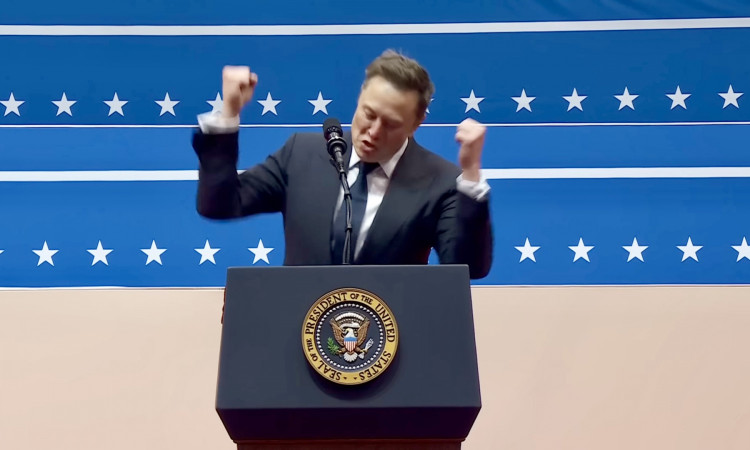Elon Musk, billionaire entrepreneur and influential adviser to President Donald Trump, ignited a political firestorm Monday by suggesting the federal government could slash up to $700 billion in spending by targeting fraud and waste in entitlement programs such as Social Security and Medicare.
In a candid interview with Larry Kudlow of Fox Business Network at the White House, Musk claimed that federal entitlements are plagued by fraud and insisted this area of the budget should be the prime focus of cost-cutting efforts. "Most of the federal spending is entitlements," Musk said. "That's the big one to eliminate."
Musk specifically estimated that between $500 billion and $700 billion in federal spending could be trimmed by aggressively pursuing fraud and inefficiencies. These numbers starkly contrast with official government assessments, including those from Social Security's Inspector General, who previously cited only $71.8 billion in improper payments between fiscal years 2015 and 2022-representing less than 1% of total benefits disbursed.
Further fueling controversy, Musk repeated a widely debunked claim that Social Security databases list "20 million people who are definitely dead marked as alive." Lee Dudek, Social Security's acting commissioner, refuted this assertion, clarifying, "These individuals are not necessarily receiving benefits."
Democratic officials swiftly criticized Musk's remarks, accusing him of openly advocating for cuts to popular benefit programs. Former Transportation Secretary Pete Buttigieg, responding on Musk's own platform X, stated: "There were howls of protest and denial from the GOP any time we pointed out that Republicans want to cut Social Security. Now the most powerful official in the White House goes on TV and calls it 'the big one to eliminate.'"
The White House defended Musk's statements by clarifying his intent was specifically targeting fraud. Alex Pfeiffer, principal deputy communications director at the White House, pushed back against Buttigieg's criticism on X, writing, "Pete Buttigieg is Ivy League educated and allegedly smart. So can he not hear Elon say 'waste and fraud in entitlement spending' or is he lying to you?"
Still, Musk's language, describing entitlements broadly as problematic, reignited longstanding fears among Democrats that Republicans plan deep cuts to crucial social safety net programs. Sen. Elissa Slotkin (D., Mich.) posted on X: "Musk said the quiet part out loud: he's going after your Social Security and Medicare. Period."
Musk, who now leads the newly formed Department of Government Efficiency (DOGE) under Trump, defended his approach, asserting his team aimed at curbing widespread fraudulent activities across multiple federal agencies. "There's a massive amount of fraud of, basically, people submitting Social Security numbers for Social Security benefits, unemployment, Small Business Administration loans and medical care," Musk explained. "We're trying to put a stop to all of that."
Republican support for Musk's mission remains significant, viewing it as essential in reducing perceived wasteful government spending. Rep. Richard Hudson (R., N.C.), chairman of the National Republican Congressional Committee, said, "The American people are sick of the swamp. They're sick of waste, fraud and abuse. For the first time ever, we finally have the tools to affect it."
Yet Musk's aggressive rhetoric and high-profile role have drawn mixed public opinion. A recent CNN/SSRS poll indicated about half of Americans disapproved of Trump elevating Musk's influence within the administration, while only a third supported the move. Separately, a Washington Post-Ipsos survey found Americans evenly split over whether Musk's cuts targeted wasteful or necessary spending, underscoring the nation's divided views.
Within Congress, bipartisan skepticism has emerged. Republican Rep. Tom Cole of Oklahoma highlighted resistance to cuts affecting his constituents, announcing successful efforts to protect local federal offices from closure, asserting these institutions provide "vital and valuable services."






